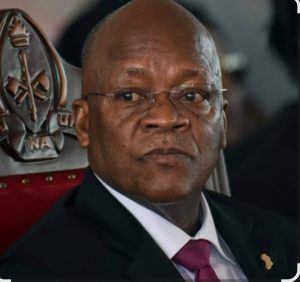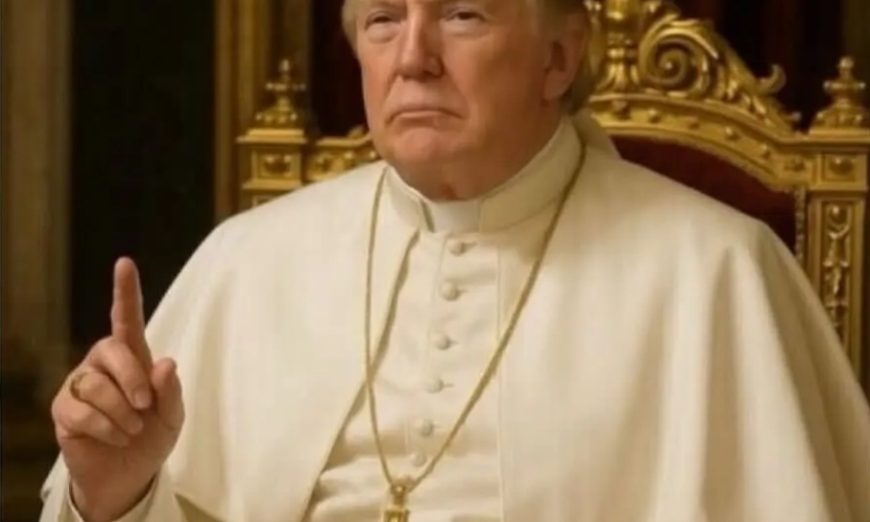IN 2016 when then Tanzanian President John Magufuli told supporters at a public ally that, upon his death, he hoped to lead angels in heaven, many took it as a window into the psyche of a leader who sought not just loyalty but near-divine obedience.
On the other side of the globe, U.S. President Donald Trump, in one of his recent off-the-cuff remarks, jokingly expressed a desire to be pope – another figure traditionally viewed as infallible in matters of faith. Trump’s joke was criticized in Italy and elsewhere.
Though separated by continents, cultures, and economic development, the two men shared a similar political temperament – populist, combative, and deeply enamored with power.
Magufuli, nicknamed “The Bulldozer” by some Western media for his approach to governance, rose to power promising to eliminate corruption and streamline government operations. To many who.never knew him well, he projected an image of moral uprightness and religious piety, often using Christian language to bolster his authority.
His wish to “lead angels” was more than metaphor. It was a reflection of his frustration with democratic constraints and a desire for absolute control, unconstrained by human imperfection.
On the other hand, Trump’s quip about the papacy, while seemingly humorous, echoed a similar longing for uncontested influence in a system where opposition is inevitable.

Both leaders cultivated direct, emotional bonds with their followers, positioning themselves as “voices of the common man” against corrupt elites.
In Tanzania, Magufuli’s frugality and symbolic war on waste endeared him to a population weary of government excess. In the United States, Trump’s “drain the swamp” mantra and rejection of political correctness resonated with millions.
Yet, where Magufuli presented himself as a strict, disciplinarian step father of the nation, Trump took on the persona of a showman – mixing political messaging with spectacle and provocation.
Their approaches to media further underscored the contrast in their political environments. Magufuli’s government clamped down on press freedom with alarming efficiency – banning newspapers, silencing critics, and enforcing repressive media laws.
In contrast, Trump – despite frequently labeling journalists as “enemies of the people” – was unable to curb the media’s institutional independence.
His attacks inflamed political division but were largely rhetorical and often served to rally his base rather than impose actual censorship.
Perhaps the most telling difference between the two lies in the systems they operated within. Magufuli governed a developing nation with relatively weak institutional safeguards, giving his authoritarian leanings more room to reshape the political landscape.
Trump’s presidency, while deeply polarizing, was buffered by the strength of American democratic institutions, even as they were tested.
The aftermaths tell their own stories: Magufuli’s unexpected death in 2021 exposed the fragility of a state tightly controlled by one man, while Trump’s refusal to accept the 2020 election outcome shook public trust but ultimately did not derail the constitutional order.
In the end, both men tapped into populist currents and wielded power in deeply personal ways.
Yet, while one ruled with an iron hand cloaked in divine language, the other governed through spectacle and defiance.
The comparison reveals not just similarities in temperament but the crucial role that political systems – and the strength of democratic institutions – play in shaping the limits of a leader’s ambition.
Although both presidents might have made such utterances in humour, a psychologist’s view of the same might interpret their statements with a deep meaning.
Magufuli’s wish to lead angels and Trump’s quip about becoming pope – not merely as humor, but as revealing glimpses into each leader’s ego structure and self-perception.
These utterances, though cloaked in jest, suggest an inflated sense of self-importance, a desire for adoration, and a discomfort with the limitations of democratic leadership.
They may reflect underlying narcissistic traits, including a grandiose self-image and a craving for control in environments where dissent exists.
In both cases, the humor serves as a socially acceptable veil for deeper authoritarian impulses and a need to be seen as morally or spiritually superior.










